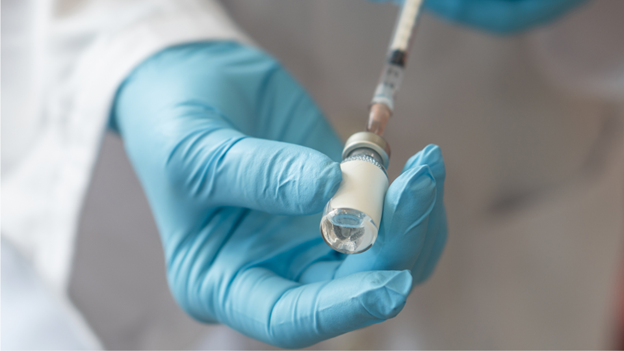
Staying protected: How often do you need a tetanus shot?
You probably know that defending yourself against tetanus is important to your health. But you may overlook or forget about getting regular preventative shots.
How often do you need a tetanus shot, and what are the symptoms of tetanus infection? We unravel the answers to these questions and explain about the important protection a tetanus shot offers.
What is tetanus?
Tetanus, also known as lockjaw, is an infection caused by Clostridium tetani bacteria.
This bacteria is present in soil, dust, and manure. And it can find its way into your body through small cuts, wounds, or burns — even ones you might not notice.
Is tetanus dangerous?
The short answer is yes: Tetanus is not to be taken lightly.
Tetanus can impact your nervous system and cause unpleasant symptoms. Muscle stiffness and spasms can become severe, interfering with daily activities and potentially threatening your health.
Tetanus symptoms
Understanding tetanus symptoms can help you stay ahead of the game. The early signs of tetanus can be subtle, worsening gradually if left untreated.
Some telltale signs of tetanus include the following.
Early tetanus symptoms
- Jaw stiffness. One initial sign could be stiffness in your jaw muscles, making it difficult to open your mouth fully or swallow comfortably.
- Neck stiffness. You might notice stiffness in your neck muscles, leading to discomfort and limited movement.
- Muscle coordination issues. You could experience trouble with muscle coordination, affecting normal movement.
Later tetanus symptoms
- Painful muscle spasms. Muscle spasms can become more pronounced as tetanus progresses. These spasms can be quite painful and affect different parts of your body.
- Sensory triggers. Even small triggers like noise, touch, or sudden movements can provoke muscle spasms, causing significant discomfort.
- Breathing difficulties. Severe tetanus might lead to difficulty breathing due to spasms affecting the neck and abdominal muscles.
The good news is that cases of tetanus are extremely rare because the tetanus shot is so widely available. But it is important to be mindful of how often you need to get a tetanus shot.
How often do you need a tetanus shot?
Now that we understand tetanus, the next logical question is: How often should you get a tetanus shot to continue to stay protected?
The general guideline is that most people should get a tetanus booster shot every 10 years. This booster keeps your tetanus defenses up and often includes protection against diphtheria and pertussis infections as well.
Still, some situations might warrant a tetanus shot even if you've had one within the last 10 years. If you have a deep or dirty wound or are unsure when your last tetanus shot was, stop by your local CityMD urgent care for advice and treatment.
You may be wondering if the tetanus shot has any side effects. Common side effects are usually mild and may include pain, redness, and swelling where the shot is administered.
Some patients are concerned about how much the tetanus shot hurts when it is given. It is important to remember that the pain felt during administration lasts for only a few seconds and generally resolves quickly.
Tetanus shots at CityMD
Take charge of your health and well-being by staying informed and taking proactive steps to prevent infection. And if the unexpected happens, stop by your neighborhood CityMD urgent care.
Our team of dedicated health care professionals is here to provide timely tetanus shots and prevention tips. Whether you're exploring the great outdoors, tending your garden, or simply navigating life's unpredictable moments, CityMD is here to help you with tetanus prevention.

We’re ready to care for you.
Visit any CityMD urgent care location in your community today for an evaluation with one of our expert providers.